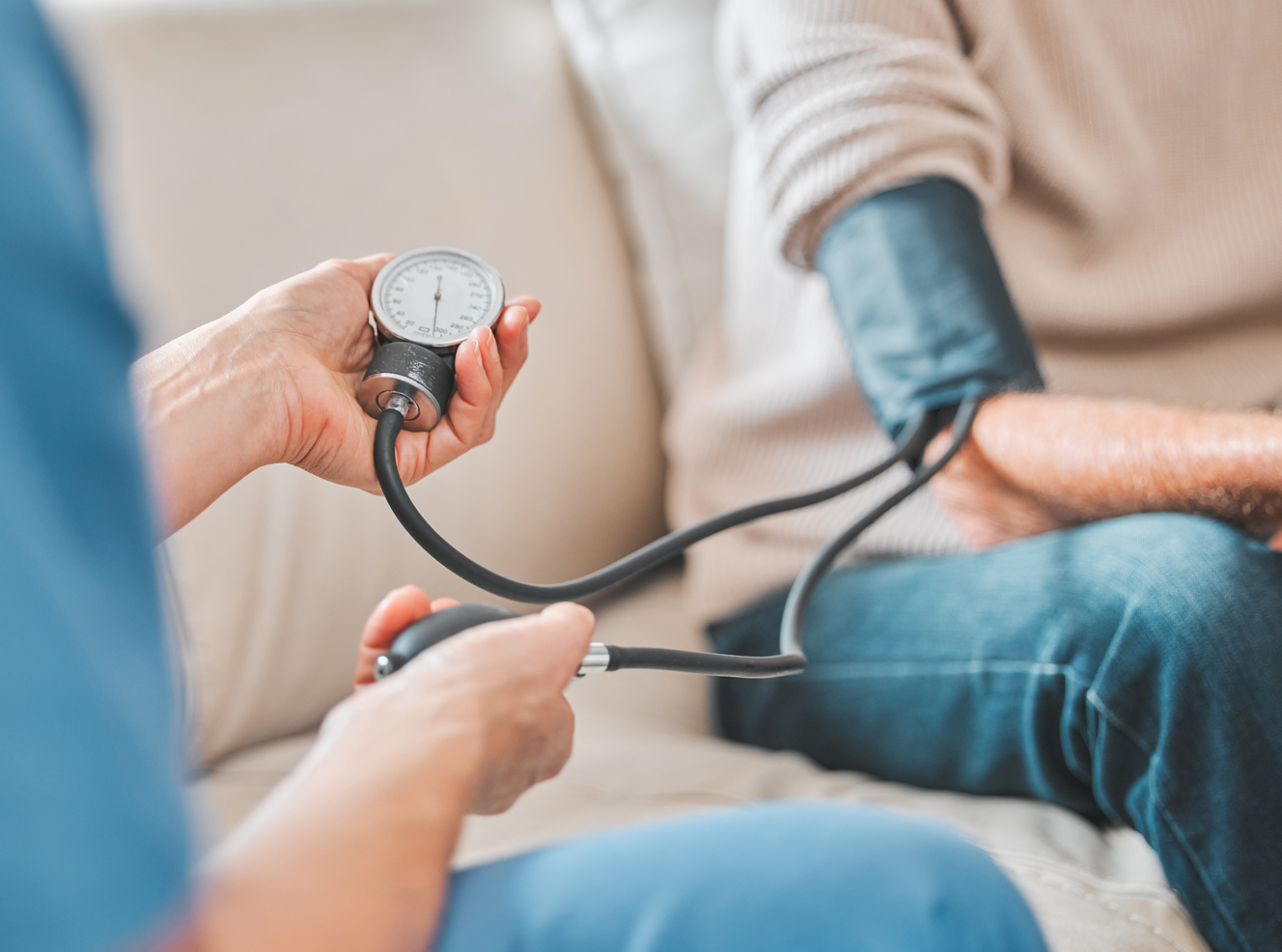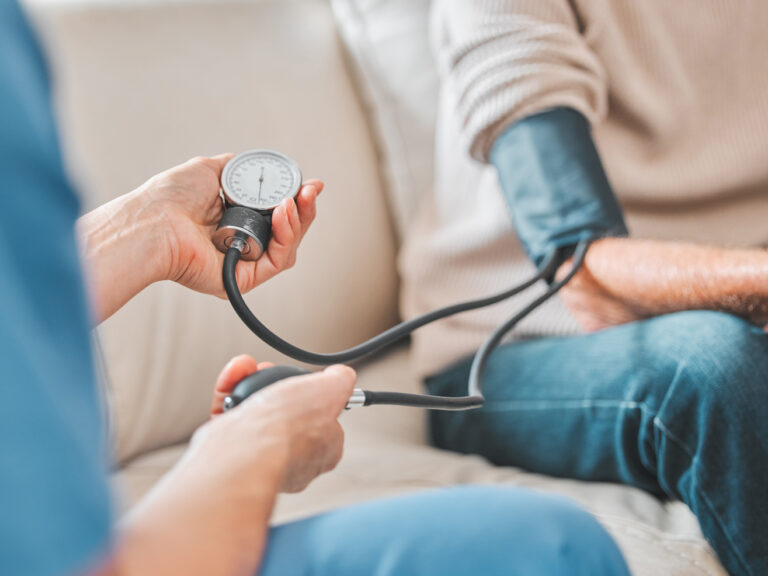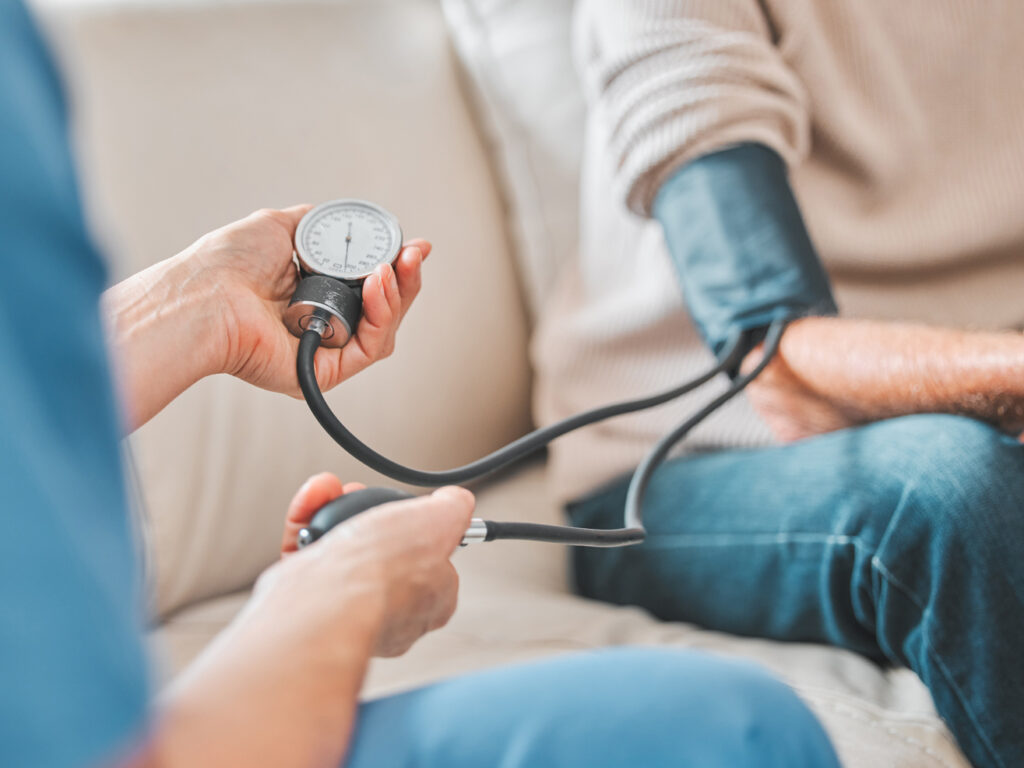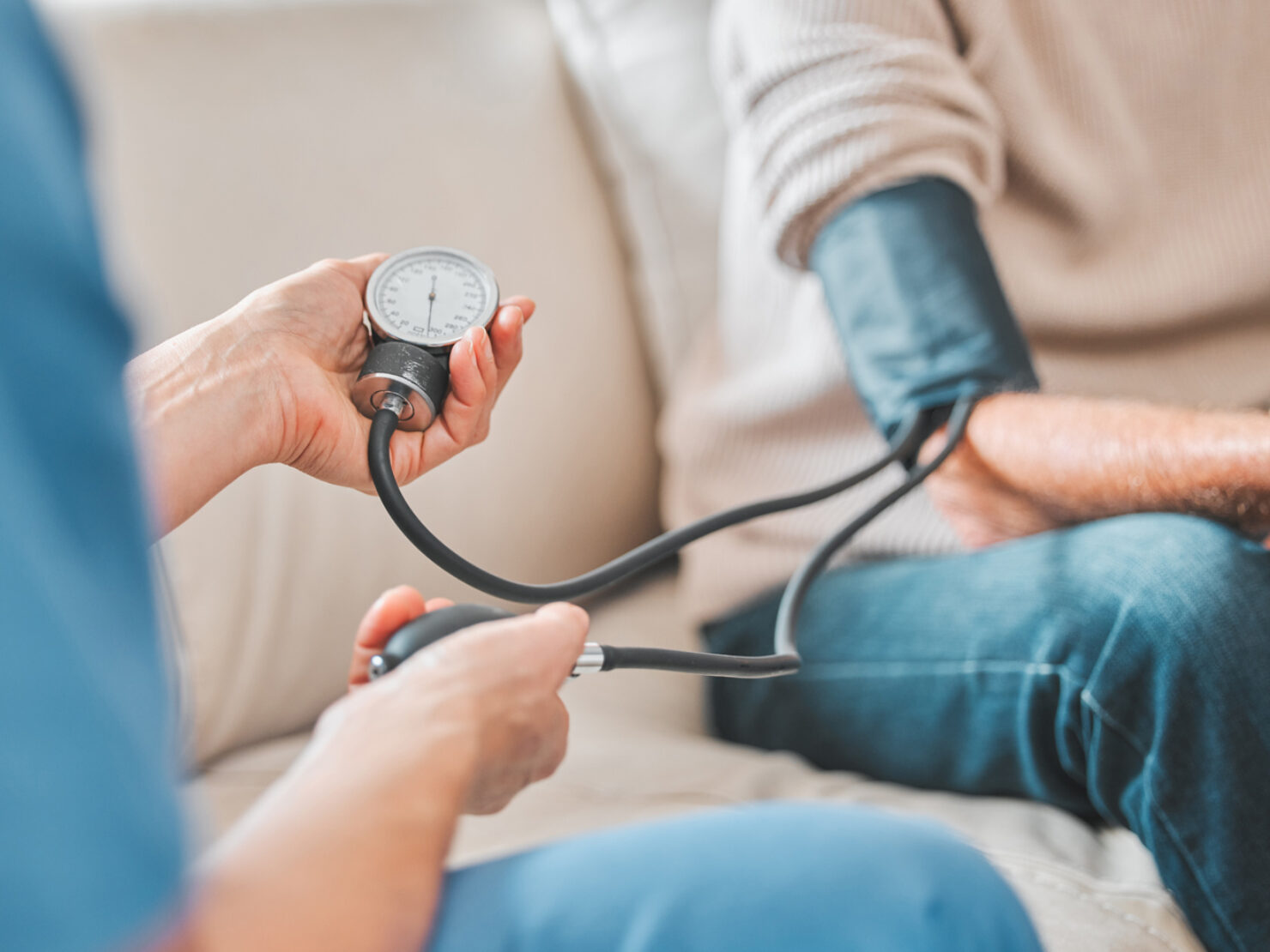For Noreen and David Crandall, the Daniella Lipper ALS House Calls Program at Massachusetts General Hospital has been a game changer.
“Managing amyotrophic lateral sclerosis (ALS) is overwhelming,” says Noreen, whose husband David has been living with the fatal disease since 2020. “The opportunity to have a nurse provide comforting care in our home allows David to maintain his dignity, while reducing the stress around spending an entire day getting in and out of the city for an appointment in the clinic.”
The Daniella Lipper ALS House Calls Program — established by the EGL Charitable Foundation and named after Daniella Lipper, a patient of ALS clinician Merit Cudkowicz, MD, MSc — supports nurses and nurse practitioners who visit homes in Massachusetts to provide medical, emotional and social support to ALS patients and their loved ones.
The nursing team delivers expert medical care that includes taking vitals, symptom management and support, cleaning or changing feeding tubes or checking ventilation machines that support breathing. The team also shares information about research opportunities. The program is carried out in conjunction with Compassionate Care ALS, a non-profit organization that evaluates equipment needs, gives free wheelchairs and other equipment and helps patients add ramps and lifts to improve access to their home.
Delivering Better-Than-Standard Care
“The House Calls Program allows us to deliver care the way it should be delivered,” says James D. Berry, MD, MPH, who sees patients with ALS while serving as the Williamson Winthrop ALS Scholar, Averill Healey Endowed Chair in ALS and chief of the Motor Neuron Division at Mass General. “Bringing ALS care into the home allows us to provide better-than-standard care, reduces medical isolation and improves patients’ connection to our clinic by providing more frequent touchpoints.”
“The impact this program has on our patients is immeasurable,” says Jen Scalia, NP, who directs the ALS House Calls program and co-directs the ALS Multidisciplinary Care Clinic at Mass General. “It provides the kind of holistic care we know improves quality of life for individuals living with ALS.”
Home Visits Augmented with Virtual Visits
The Crandalls receive a House Call once every three months and as needed. They also have virtual visits with Dr. Berry. However, almost none of the services offered through the House Calls Program are covered by insurance.
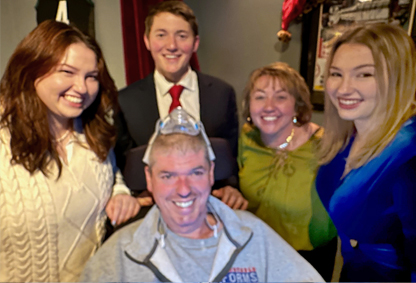
“The EGL Charitable Foundation’s extraordinary gift ensures this amazing program will always be available to our patients,” says Dr. Berry. “We are all truly humbled by the Lipper family’s thoughtful commitment to others living with ALS.”
“The House Calls program is not just about convenience for patients. It is the complement to personalized medicine — namely, personalized care.”
“We work closely with our patients to develop innovative new programs,” says Dr. Cudkowicz, who, in addition to caring for patients like Daniella, serves as chair of the Neurology Department and director of the Sean M. Healey & AMG Center for ALS at Mass General. “Daniella had this brilliant idea, and Dr. Berry and our team came up with a plan, but we could not have made it a reality without the EGL Charitable Foundation’s generosity.”
“The House Calls program is not just about convenience for patients. It is the complement to personalized medicine — namely, personalized care,” says Daniella Lipper. “Absent any treatments to cure ALS, or even to make it a chronic but manageable disease, such care must remain the focus of any treatment plan.”
Seeing the Person Beyond the Disease
For the nurses who care for individuals with ALS, the opportunity to meet people in their home environment is an eye-opening experience.
“I am able to see who they really are: wonderful people outside of their illness,” says Kristen Kingsley, RN, who has been with the program since its launch seven years ago, but who has worked with ALS patients throughout her 20-year career as a nurse. “I see their family photos on the wall, learn about their hobbies, their children, their pets.”
As ALS progresses, it becomes increasingly difficult for individuals to leave their home. Challenges include lack of transportation, access to technology and difficulty navigating areas with limited accessibility.
“The generosity of EGL Charitable Foundation sustains the program and allows us to think about ways to expand it to other areas across the country and around the world.”
“David’s disease affected his diaphragm, so we needed a breathing machine and did some voice banking to support his communication needs,” says Noreen. “But, as the disease progressed, he lost control of the muscles in his neck, requiring his head to be strapped in to remain upright, making it difficult to travel comfortably, let alone navigating his wheelchair or trying to use the bathroom in an unfamiliar place.”
“The generosity of the EGL Charitable Foundation sustains the program and allows us to think about ways to expand it to other areas across the country and around the world,” says Dr. Berry.
PACT Program Provides Parent Guidance
In addition to the House Calls Program, the EGL Charitable Foundation also supports the Parenting at a Challenging Time (PACT) Program, which offers guidance to help parents and grandparents talk about ALS with children and young adults in the family. The PACT team also helps parents to identify ways to support children’s coping with changes in a parent’s mobility, speech and breathing, and to address children’s anticipatory grief.
Because Kristen is a consistent visitor, the Crandalls have come to trust her advice and deeply appreciate her care.
“Kristen has been our beacon of hope,” Noreen says. “She coaches us on how to stay in front of this disease. She is David’s biggest advocate, and knowing we can rely on her has made such a difference in our ability to handle decisions we have to make.”
Make a gift to the Daniella Lipper ALS House Call Program or the Daniella Lipper ALS PACT Program. To learn more, contact us.
